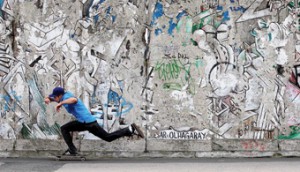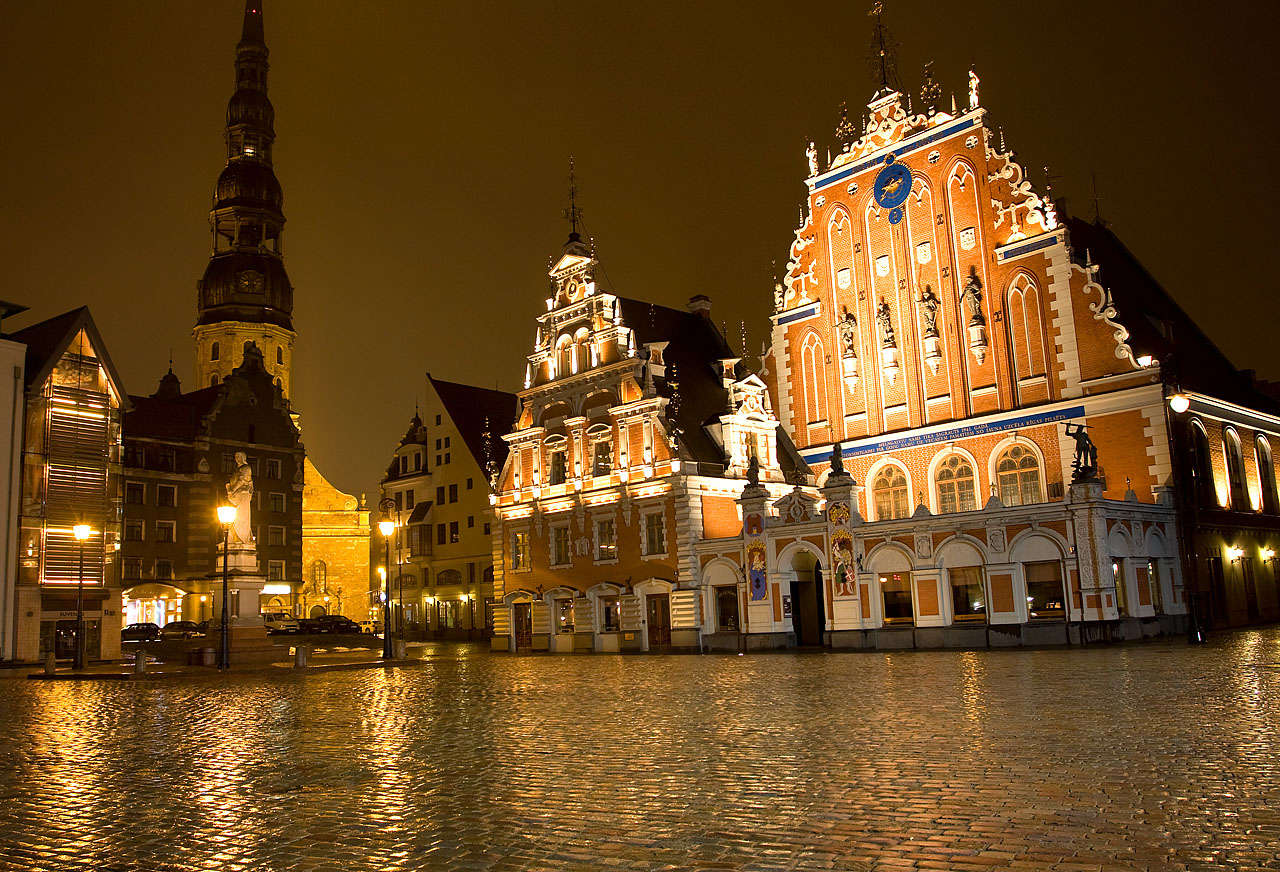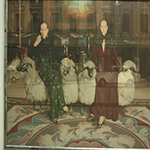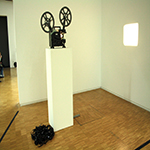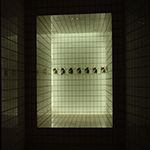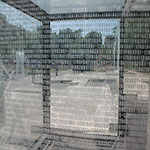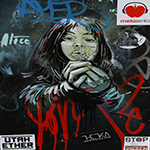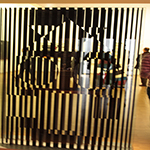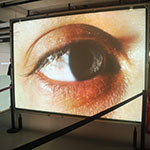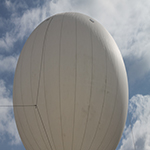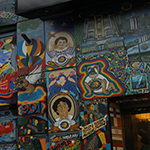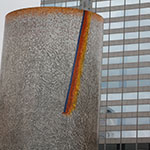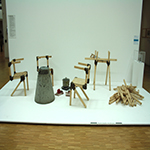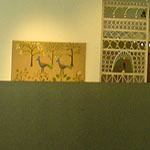Albert Hotel
Conference Room: Space
33 Dzirnavu Street, Riga
LV-1010, LatviaConference Program
- January 29, 2016
- 09:00 - 09:30Participant’s Registration (Reception Desk, Conference Room Space - Foyer)
- 09:30 - 10:30Welcome and Opening Remarks - Opening Workshop: Re-Inventing Eastern Europe
- 10:30 - 11:00Coffee Break and Snacks (Conference Room Space - Foyer)
- 11:00 - 13:00Panel 1 – The Persisting Agenda of the Enlightenment: Inventing and Imagining Eastern Europe through Axiological Categories from Rousseau to 20th Century Writing
- 13:00 - 14:30Lunch – Bestsellers Restaurant
- 14:30 - 16:30Panel 2 – Imagined Geographies of Eastern Europe and Readings of the Past: Regions, Borders, Peripheries and Identities
- 16:30 - 17:00Coffee Break and Snacks (Conference Room Space - Foyer)
- 17:00 - 19:00Panel 3 – Art as Cultural Diplomacy: (Re)Constructing Notions of Eastern and Western Europe
- 19:00 - 19:45Welcome Drink Out in Riga
- 19:45 - 21:00Optional Social Dinner in a Typical Latvian Cuisine Restaurant
- January 30, 2016
- 09:00 - 11:00Panel 4 – The Persistence of East / West Division: Genealogies of Othering, the Making of Legal Peripheries and Geopolitical Views on the Dynamics of a Region
- 11:00 - 11:30Coffee Break and Snacks (Conference Room Space - Foyer)
- 11:30 - 13:00Panel 5 – Assessing Political Behaviors and Transformations: Transition and Change in Central and Eastern Europe
- 13:00 - 14:30Lunch – Bestsellers Restaurant
- 14:30 - 16:30Panel 6 – Central East European Economies: Trade, Development and Structural Change in the Region
- 16:30 - 17:00Coffee Break and Snacks (Conference Room Space - Foyer)
- 17:00 - 19:00Panel 7 – Art as Cultural Diplomacy: From Change in Urban Image Construction to Instruments of Cultural Promotion
- 19:00 - 19:30Closing Session
- 19:30 - 21:00Optional Social Dinner in a Typical Latvian Cuisine Restaurant
- January 29, 2016
Future Events
Re-Inventing Eastern Europe (The Fifth Edition)
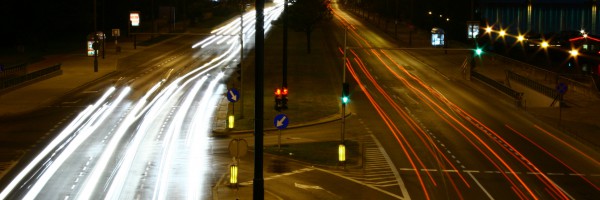
- Conference Description
- Participant’s Profile
- Registration and Fee
- Social Activities and Publication
- Important Dates
- Venue and Directions
- Conference Program
- Panel 1
- Panel 2
- Panel 3
- Panel 4
- Panel 5
- Panel 6
- Panel 7
The Fifth International Conference
Re-Inventing Eastern Europe
29 – 30 January 2016
4* Albert Hotel, Riga, Latvia
Conference Description
Not a long time ago, a British lady was considered bigoted by Gordon Brown upon asking ‘all these Eastern Europeans what are coming in, where are they flocking from?’(1). The zoological word is not a novelty in the cultural invention of Eastern Europe. Maybe, despite her concern with the dangers of immigration for Britain, the lady was right in showing that such a question still awaits for answers in Europe. The ironic aspect however is that a first answer to such a question would point to the fact that the Eastern Europeans come from the Western European imaginary. As Iver Neumann puts it, ‘regions are invented by political actors as a political programme, they are not simply waiting to be discovered’(2). And, as Larry Wolff skilfully showed, Eastern Europe is an invention emanated initially from the intellectual agendas of the elites of the Enlightenment that later found its peak of imaginary separation during the Cold War(3).
The Economist, explicitly considered Eastern Europe to be wrongly labelled and elaborated that ‘it was never a very coherent idea and it is becoming a damaging one’(4). The EU enlargement however was expected to make the East/West division obsolete under the veil of a prophesied convergence. That would have finally proven the non-ontological, historically contingent and unhappy nature of the division of Europe and remind Europeans of the wider size of their continent and the inclusive and empowering nature of their values. Yet still, more than 20 years after the revolutions in the Central and Eastern European countries, Leon Mark, while arguing that the category of Eastern Europe is outdated and misleading, bitterly asks a still relevant question: ‘will Europe ever give up the need to have an East?’(5)
Eastern Europe was invented as a region and continues to be re-invented from outside and inside. From outside its invention was connected with alterity making processes, and, from inside the region, the Central and Eastern European countries got into a civilizational beauty contest themselves in search of drawing the most western profile: what’s Central Europe, what’s more Eastern, what’s more Ottoman, Balkan, Byzantine, who is the actual kidnapped kid of the West, who can build better credentials by pushing the Easterness to the next border. A wide variety of scholars addressed the western narratives of making the Eastern European ‘other’ as an outcome of cultural politics of enlightenment, as an effect of EU’s need to delineate its borders, as an outcome of its views on security, or as a type of ‘orientalism’ or post-colonialism. Most of these types of approaches are still useful in analyzing the persistence of a East-West slope. The region is understood now under a process of convergence, socialization and Europeanization that will have as outcomes an ‘ever closer union’ where the East and the West will fade away as categories. Yet the reality is far from such an outcome while the persistence of categories of alterity making towards the ‘East’ is not always dismantled. The discourses on core/non-core, new Europe/old Europe, pioneers/followers, teachers/pupils, centre/periphery, cosmos/chaos are often maintaining significant ground within the arena of European identity narratives often yet not exclusively voiced by the EU.
The Fifth Euroacademia International Conference ‘Re-Inventing Eastern Europe’ aims rather than asserting to make a case and to provide alternative views on the dynamics, persistence and manifestations of the practices of alterity making that take place in Europe and broadly in the mental mappings of the world. It offers an opportunity for scholars, activists and practitioners to locate, discuss and debate the multiple dimensions in which specific narratives of alterity making towards Eastern Europe preserve their salience today in re-furbished and re-fashioned manners. The conference aims to look at the processes of alterity making as puzzles and to address the persistence of the East-West dichotomies.
(1) See the whole dialogue between Gillian Duffy and Gordon Brown on BBC News online at http://news.bbc.co.uk/2/hi/uk_news/politics/election_2010/8649448.stm
(2) Neumann, Iver. 2001. Regionalism and Democratisation. In Jan Zielonka and Alex Pravda (eds.), Democratic Consolidation in Eastern Europe, Vol 2 International Dimensions. Oxford and New York: Oxford University Press, pp. 58 – 75, p. 71.
(3) Wolff, Larry. 1994. Inventing Eastern Europe. The Map of Civilization on the Mind of the Enlightenment. Stanford: Stanford University Press.
(4) The Economist, January 7th 2010, http://www.economist.com/node/15213108
(5) Marc, Leon. 2009. What’s So Eastern about Eastern Europe? Twenty Years After the Fall of The Berlin Wall. Trowbridge: Oldcastle Books, p.161.
Participant’s Profile
The conference is addressed to academics, researchers and professionals with a particular interest in Central and Eastern Europe, Europe related and European Union topics from all parts of the world. As the nature of the conference is intended to be multidisciplinary in nature, different academic backgrounds are equally welcomed. Cultural approaches, political studies, critical studies, out of mainstream approaches and artistic/literary contributions to the better understanding of Central and Eastern Europe in its past present and future dimensions are all equally welcomed. Euroacademia favors alternative and innovative thinking proposals and non-mainstream methodologies.
Post-graduate students, doctoral candidates and young researchers are welcomed to submit an abstract. Representatives of INGOs, NGOs, Think Tanks and activists willing to present their work with impact on or influenced by specific understandings of Central and Eastern Europe are welcomed as well to submit the abstract of their contribution.
Abstracts will be reviewed and the participants are selected based on the proven quality of the abstract. The submitted paper for the conference proceedings is expected to be in accordance with the lines provided in the submitted abstract.
Registration and Fee
Registration is closed
The Registration Fee Includes:
- the conference registration and full access to proceedings
- participant’s package with all the materials for the conference
- official invitation
- eligibility for inclusion in the conference proceedings published volume
- a copy of the electronic volume
- access to Euroacademia discussion group and newsletters
- coffee brakes with snacks and refreshing drinks for all the duration of the conference
- a 3 course lunch on 29th of January 2016 at the 4 stars Albert Riga Restaurant
- welcome drink with snacks on 29th of January 2016 at the Star Lounge Bar
- a 3 course lunch on 30th of January 2016 at at the 4 stars Albert Riga Restaurant
- certificate of attendance
- access to optional social program
Unfortunately, Euroacademia has no available funds for any financial assistance in arranging transport and accommodation to/in Riga. Participants are responsible for securing funding to cover transportation and accommodation costs during the whole period of the conference. Official invitation letters can be sent by Euroacademia to the financing institution to confirm the selection and participation in the conference upon request.
Limited discounted rates are available for selected conference participants willing to book accommodation during their stay in Riga at the conference location – Albert Hotel Riga.
Social Activities and Publication
A specific spot in the conference program will be dedicated to social networking and therefore all the participants interested in setting or developing further cooperation agendas and prospects with other participants will have time to present and/or promote their project and express calls for cooperation.
A specific setting (Social Corner) for promotional materials connected with the topic of the conference will be reserved for the use of the participants. Books authored or edited by the participants can be exhibited and promoted during the whole period of the conference and can also be presented within the conference package based on prior arrangements.
Photos and videos will be taken during the conference and the organizers will consider through the participation of selected presenters or members of the audience that the agreement for being photographed or filmed during the event was granted through registration to the event. Please notify the organizers in written form prior to the the event if you are a confirmed participant and would prefer otherwise.
An optional dinner and a social event will be organized for the second evening of the conference in a typical Latvian cuisine restaurant as optional program for the willing participants. The social dinner will be held based on participant’s confirmation and covered by participants individually on spot based on their order.
Publication:
Selected papers will be published in an electronic volume with ISBN after the confirmation of the authors and a double peer-review process based on an agreed publication schedule. All the papers selected for publication should be original and must have not been priory published elsewhere. All participants to the conference will receive a copy of the volume.
Specific selected papers will be also published in CEJISS (Central European Journal of International & Security Studies)
About CEJISS
Formally launched in January 2007, CEJISS is designed as a double-destination scholarly bridge. The first bridge was constructed with Central Europe (Czech Republic, Hungary, Poland and Slovakia) in mind, focusing on increasing the audience for Central European scholars. In this regard, CEJISS is making a substantial impact as each issue attracts attention in some 45,000 people in nearly 160 countries. However, CEJISS is not Central European centric and invites scholars from around the world to contribute. This has meant that just as Central European scholars now have an easier time gaining a footing outside of the region, so international scholars also have an easier time getting in and making an impact here. With a mere two decades separating our times from the ‘darker’ Cold War years, CEJISS aims to contribute English language perspectives to the peoples of Central Europe and give the latter the amplification their research deserves.
| Important Dates | |
|---|---|
| 1st of December 2015 | Deadline for Submitting Panel Proposals |
| 10th of December 2015 | Deadline for Submitting Paper Proposals |
| 11th of December 2015 | Latest notification of acceptance |
| 15th of December 2015 | Sending the Registration Form |
| 20th of December 2015 | Payment of the conference fee |
| 15th of January 2016 | Sending the draft paper to be uploaded on the conference website |
| 18th of January 2016 | Publication of the conference program and uploading the draft papers on the website |
| 29th of January 2016 | The conference commences at 9.00 am |
[In order to facilitate better travel arrangements for selected participants, the paper proposals are analyzed on a constant basis through regular meetings of the Selection Committee and therefore a response to the application will be delivered in maximum 5 days after the application.]
Venue and Directions
The conference will take place in the conference premises of the 4 stars Albert Hotel, centrally located in the heart of Riga, few minutes away from the Riga Old Town and within the beautiful Art Nouveau district that is a part of the UNESCO World Heritage site making easily accessible any part of the beautiful historic center and fashionable streets of Riga.
Located inside a modern building – the Albert is ideally located away from the noise, yet only minutes walk from the city’s main attractions. The hotel boasts prime location next to Riga Ghetto and Latvian Holocaust Museum, Great Choral Synagogue Memorial and Botanisches Garten des Universitaets. A 5-minute walk will take you to Powder Tower, Nativity of Christ Cathedral and Jugenda Stila Nami. The charming interiors of the venue are a fusion of modern and elegant interiors, combined with a great location and perfect service to make for a memorable stay in Riga. It is a comfortable establishment where the secret ingredients of tradition, history and modernity are blended in perfect proportions and surrounded by marvelous historical attractions of the beautiful central Riga .
Albert Hotel
33 Dzirnavu Street, Riga
LV-1010, Latvia
Phone: +371 6733 1717
Fax: +371 6733 1718
[email protected]







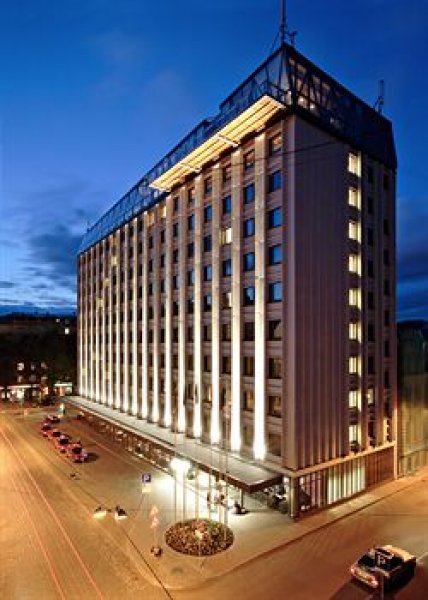

See full information about the conference Location & Map:
HERE
Conference participants are fully responsible for arranging the accommodation and travel to/in Riga. Discounted rates are available for the selected conference presenters booking a room in advance at Albert Hotel
Conference Program
The Conference Agenda is available in the right sidebar.
The full conference program with abstracts and available draft papers is available below by clicking on the respective panel number tab.
The Persisting Agenda of the Enlightenment: Inventing and Imagining Eastern Europe through Axiological Categories from Rousseau to 20th Century Writing
Chair: Emanuel Crudu (Euroacademia, Paris & Brussels)
- Bulwark of Liberty or Backward Savagery? Dispute between Rousseau and the Polish Enlightenment Thinkers Over Eastern EuropeThe main purpose of this paper is to analyse and explain the tensions between Rousseau and Polish Enlightenment thinkers as M. Wielhorski or S. Leszczyński and, by clarifying them, to reveal a deeper ambiguity of the Enlightenment discourse concerning the interpretation of Eastern Europe as well as human nature.Jan Květina, Metropolitan University in Prague, Czech Republic
- Carla Serena (1824-84): A Solo Western European Woman Traveller and Her Multifaceted EastsIn addition to the analysis of orientalist elements in Carla Serena’s work, I will show how boundaries between West and East are arbitrarily defined in her writings, and how the Caucasus displays a peculiar status, being considered both as Europe and Asia. In particular, my paper focuses on the analysis of her travels in Eastern Europe, at that time part of the Russian Empire.Daniele Artoni, University of Verona, Italy
- Remembering Mother: (Post)Memory and Archaeology of Subjectivity in Imbi Paju’s Memories Deniedthe reading and writing of Imbi Paju’s maternal memories challenges the Soviet politics of destroying memory, intimacy and family ties in the name of a superior, supposedly stable sense of identity. In that, the focus is on how Paju “imagines” a past, a mother, an Estonia and an exile, as well as on how these affect her personal and artistic development.Andreas Athanasiades, University of Cyprus
- The Punctum of Lived Experience or an Autobiographic Reading of Herta Muller’s The Appointment (1997)Through her narrative reflections on communism as a lived personal and historical experience, Muller’s autofiction contributes to “the shaping, and misshaping [of] the new European ‘order’” and of the necessary myth of the united Europe (Judt, “The Past,” 84). Her writings call attention to that “other Europe” and the exigencies of a “new” European identity within the European Union. Remembering a past lived differently, such post-communist narratives impose the necessity for a more nuanced understanding of European memory and of the historical conditions it narrates.Szidonia Haragos, Zayed University, Dubai, United Arab Emirates
Imagined Geographies of Eastern Europe and Readings of the Past: Regions, Borders, Peripheries and Identities
Chair: Bjorn Ingvoldstad (Bridgewater State University, USA)
- Moravian Attempts to Have a National Identity Distinct from that of the CzechsIn our paper we present the ideas of the Moravian separatists on the basis of the archive documents and of the reflections of the old and contemporary Czech and Moravian historians. The purpose is to remember a circumstance not enough researched, concerning an important part of “Central Europe” considered by now, at least from the political point of view, almost invisible.Giuseppe Maiello, Department of Human and Social Sciences, University of Naples „L’Orientale”, Italy
- Escape from Eastern Europe? Czech Identity and Frames of Historical MemoryThese analyses of Holý and Todorova will be complemented by analyses of three key frameworks of memory, on the basis of which we shall demonstrate the exclusionary relationship of Czech identity towards Eastern Europe and the ambivalent relationship to the West. These three frameworks are Munich, socialism with a human face and Central Europe.Ondrej Slacálek, Institute of Political Science, Charles University, Prague, Czech Republic
- The (Baltic) “Near Abroad”: Culture Across Borders or Borders Across Culture?Based in interviews, ethnographic field work, and study of public discourse and media, this presentation will examine the uncomfortable intersections of (Eastern) Europe and Russian Near Abroad in the geographical imagination of the Baltic region.Kevin M. F. Platt, University of Pennsylvania, USA
- Illustration of a Memory: Lustration and Memorialization as Joint Mechanisms for Transitional Justice in EstoniaThe purpose of this paper is to evince the juxtaposition of memorialization and lustration; I also question if this was effective in offering redress to a nation in transition. After offering some disadvantages and advantages of these two mechanisms, I aim to defend them and show how they can be instrumental in redressing past wrongs by legitimizing a collective narrative.Natalie M. Balents, The Fletcher School of Law and Diplomacy, Tufts University, USA
- Rescaling Postcolonial Approaches: The Making of Rural Peripheries in Estonian Media DiscourseFollowing a critical discourse analysis approach, the making of rural peripheries will be discussed on the example of discourses in Estonian national print media. Despite being hegemonic, these can always be brushed against the grain in search for subaltern voices. Therefore, the illustrative analysis will deconstruct the dominant peripheralization discourse as well as its counter-discourses.Bianka Plüschke-Altof, University of Tartu, Estonia
Art as Cultural Diplomacy: (Re)Constructing Notions of Eastern and Western Europe
Chair: Cassandra Sciortino (University of California Berkeley, USA)
- Inbetween. Romania at the 1867 World ExpositionThe paper explores what identity-defining intentions are attempted to be visibly conveyed in Romania’s self-representation, which difficulties arise in its reception between Western and Eastern gaze and how both are conditioned by the contemporary political context.Mara-Lisa Kinne, Graduate Centre for the Study of Culture, Justus-Liebig-Universität Giessen, Germany
- Europe East and West? USSR and France as Cultural Diplomacy Actors in Occupied Austria, 1945-1955Looking at a rather unusual French-Soviet comparison, the paper attempts a critique of cultural diplomacy theoretical framework aiming to adapt it to the complexity of cultural phenomena not explained through politically-centred approaches. It argues that cultural prestige, to be attained by inherently cultural means, is no less meaningful for country’s standing abroad than promotion of political values.Alexander Golovlev, European University Institute, Florence, Italy
- From Kissing the West to Losing the Virginity: Estonian Performance Art during PerestroikaIn my paper I will discuss the topic of Estonian performance art and its reception during perestroika in an edeavour to overcome the obstacle of the East-West dichotomy. The isolation of the Soviet society has been both over- and underestimated. Is there a mid-ground in the essence of the genuine artworks that surpasses the dualistic prejudice?Liis Kibuspuu, Estonian Academy of Arts
- Ostalgia as a Special Artistic Development in the Contemporary ArtWithin this artistic research Ostalgia is the starting point. Based on existing memories of witnesses, literature and visual material about the Soviet era, character of Ostalgia is examined, and the boundaries of the phenomenon with the Contemporary Art are explored. The research intends to represent Ostalgia as an artistic subject. The process and the final result play an important role during the creating of the artistic work. Installations and objects that are realized during this research will be the artistic result of this complex phenomenon.Natalia Drobot, Faculty of Architecture, Hasselt University, Belgium
The Persistence of East / West Division: Genealogies of Othering, the Making of Legal Peripheries and Geopolitical Views on the Dynamics of a Region
Chair: Emanuel Crudu (Euroacademia, Paris & Brussels)
- East Alterity: West Alterity. The Building of Polishness in Democratic Opposition Inteligencja’s Historical Narratives (1976-1991)This paper explores Polish opposition intelligentsia’s reflections on the relationships of Poland with Russia and the West, understood as the geographic and imaginary poles between which this country’s ethos, fate and debates oscillated for the last three centuries. Conceived as an intersection between intellectual, cultural and political history of opposition to Communism, my proposal approaches the issue through the analysis of legal and underground oppositional publications written by a selection of intellectuals of the time (1976-1991).María Cristina Álvarez González, Universidad Complutense de Madrid, Spain
- Law and the PeripheryThe ideology of the EU legal profession is one of the centre of the EU, and this importantly determines how harm is understood in EU law and which doctrines are present in legal thinking. For example, there is a presence of social dumping, but an absence of goods dumping in the EU legal vernacular. I argue that the centre-periphery relationship is structured by legal entitlements, that the overtly political discourse of left and right is analytically insufficient and explain the phenomenon of conceptualism of contemporary legal thought.Damjan Kukovec, Harvard University, USA
- The Politics of the New Relations between China and the Countries of Central, East and Southeast Europe. Lessons from the 16+1 CooperationThe paper builds upon primary and secondary sources on the new relations between China and Eastern Europe, as well as data gathered through participant observation in some of the forums where the 16+1 cooperation has been formulated. The increasing interaction with China, as well as the Chinese understanding of the region add new perspectives on the disposition of Eastern Europe in Europe and in the global political landscape, and help craft a more critical understanding of the intra-regional socio-political dynamics.Anastas Vangeli, Polish Academy of Science, Warsaw, Poland
- How Justified is the Unprecedented Success of the Postcolonial Theory in Eastern Europe?The paper considers the reasons for this success and claims that an important one is that using the postcolonial 'academic language' allowed its representatives in Central and Eastern Europe to enter into a global dialogue with those in other regions. Moreover, the fact that the postcolonial method is not a consistent or coherent methodology might have also helped, as it made its application smoother to the most diverse contexts.Monika Baar, Leiden University, Netherlands
Assessing Political Behaviors and Transformations: Transition and Change in Central and Eastern Europe
Chair: Giuseppe Maiello (University of Naples „L’Orientale”, Italy)
- Women’s Access to Positions of Political Leadership: Gendered Narratives from English Language Newspapers in the Case of Yulia Tymoshenko of UkraineMy thesis is a case study about Yulia Tymoshenko of Ukraine, that analyzes the contextual factors of the rise to the position of prime minister twice (2005, and 2007-2010), and her failed presidential campaign (2010). Why Tymoshenko was perceived as viable for the position of prime minister, yet was unable to secure the position of president in 2010? Moreover, how was gender used to portray Tymoshenko in English language newspapers during her time as head of government and her pursuit for head of state?Anastasia Sereda, Department of Women and Gender Studies University of Lethbridge, Canada
- Performing Corruption in UkraineThis paper deconstructs the idea of corruption as it relates to Ukraine. This is achieved through six vignettes: (i) a conference performance by a leading international expert on Ukraine's political-economy; (ii) the potential of the idea of corruption to harness popular resentment towards commercial and political elites particularly during election campaigns; (iii) the way Ukraine performed the role as a laboratory in which the World Bank experimented with the idea of corruption;Adam Swain, School of Geography, University of Nottingham, UK
- Rules of the Game in the Ukrainian Corruption and the Concept of the Ukrainian Version of Capitalism: the Principles of Interpretation in the Context of European IntegrationThe fundamental mistake in terms of assessment and analysis of the Ukrainian reality - search for “rules of the game” that operate in the Ukrainian territory. They are efforts to be found, systemized, detailed, turned in any particular methodology suitable for an easy understanding. In fact, in the Ukrainian crisis reality for the past 25 years, no rules of the game have been established.Viktor Myroslavovych Melnyk, Kyiv National University named after Taras Schevchenko, Department of Politology
- The Power of Naming and Subaltern Identities in Europe: Eastern Europe as Internal OtherThe discourse on core-periphery, new Europe/old Europe is rather gaining increasing ground in the arena of European identity narratives voiced by the EU. This paper proposes an unfolding view of the EU as a sort of post-modern neo-medieval empire (Zielonka 2006) in which narratives of othering towards Central and Eastern Europe preserve their salience. The paper advances a research puzzle rather than making definitive statements.Emanuel Crudu, Euroacademia (Paris, Lucca & Brussels)
Central East European Economies: Trade, Development and Structural Change in the Region
Chair: Emanuel Crudu (Euroacademia, Paris & Brussels)
- Foreign Direct Investment in Dynamics of Endogenous Economic Growth in the Central East European CountriesThe methodology of this article is based on the analysis of the models of endogenous growth to reveal the relationship between foreign direct investment and the economy's rate of growth in the Central East European countries and to explore what macroeconomic adjustment is necessary for creation of effective aggregate demand for innovations and transition to knowledge-driven model of sustainable economic growth.Tatyana Boikova, Baltic International Academy, Riga, Latvia
- The Determinants of Profitability: Evidence from Croatian Construction SectorThe authors analyze theoretical background and use empirical research to investigate the relation between profitability and selected determinants like price cost margin, concentration index, growth, size, material costs and lagged profitability. Special remarks are given with review of construction sector importance for the growth of the Croatian economy and repercussions of global financial crises. According to that, the empirical part of article use generalized method of moments for dynamic panel model which showed significant results. Overall, the results showed strong relationship between company size, concentration index, growth, lagged profitability and profitability besides number of employees.Danijel Mlinaric, Faculty of Economics and Business, Zagreb, CroatiaLorena Škuflic, Faculty of Economics and Business, Zagreb, CroatiaMarko Družic, Faculty of Economics and Business, Zagreb, Croatia
- Estimating Barro Misery Index in Democratic States with Application in Albania: 2005 – 2014In the present study we develop a statistical analysis of the Barro misery index and its components in contemporary democratic states with application in Republic of Albania during the period January 2005- December 2014.Fejzi Kolaneci, University of New York in Tirana, Albania
Art and Cultural Diplomacy: From Change in Urban Image Construction to Instruments of Cultural Inclusion and Promotion
Chair: Cassandra Sciortino (University of California, Santa Barbara, USA)
- Temporal City. Exploring Urban Change in Tallinn, Estonia. Typologies of Indeterminate LandscapesThe paper looks at urban indeterminacy in post-socialist Tallinn. I suggest that through typomorphological analysis, observing, documenting and analysing (creating 'eclectic atlases' (Boeri, 2003) of culturally, socially or economically motivated (temporary) appropriations of indeterminate sites and mapping continuous urban change, a basis can be created for developing a new model of cooperation between stakeholders in planning, redefining the role of an urban planner as well as influencing policy making in terms of re-conceptualising developing private property in relation to the wider urban context.Kaija-Luisa Kurik, Manchester School of Architecture, Manchester Metropolitan University
- Participatory Urban Replaning and Artistic Street Activities in St. PetersburgIn this presentation I will investigate how street activities and artistic guerrilla actions reflect upon the political situation, social disparity and economic insecurity in Russia by taking the example of the city of St. Petersburg. The self-proclaimed and widely acknowledged “cultural capital” of Russia owns the biggest collection of European and Russian art as well the largest open air collection of baroque and classic architecture in Russia.Ira Konyukhova, Hochschule fur Gestaltung, Karlsruhe, Germany
- To Build Strong Children: Toledo, Ohio as a Case Study in Arts DiplomacyUsing a methodology derived from the World Café model, students interviewed members of this marginalized and underserved community and discussed what they wanted the mural to say and achieve. This talk will discuss the aims, process, and short-term legacy of this project, and will propose applications of this approach in European countries such as Denmark, which are currently struggling with the integration of Eastern and Western populations.Thor J. Mednick, University of Toledo, Toledo, OH, USA
- The Eastern European Identity in Verbatim TheatreUsing verbatim technique as a main method of storytelling, he often combines it with materials from other sources such as newspapers, judicial documents etc. In this play he not only raises the question of Eastern European identity, but analyses the ways how it is perceived by the Western people.Sara Nalbandyan, Department of Cultural Studies, Yerevan State University, Armenia
- (Re)Constructing Identities: Post-Soviet Art of the Baltic Countries at Venice Biennale 1999My paper addresses the importance of a relatively new discourse within our discipline - the history of exhibitions - and its role in the post-Soviet context of the regional art history of the Baltic States. I am proposing a case study on the first participation all of the Baltic countries in 1999 Venice Biennial.Vinogradova Ekaterina, Grenoble Alpes University and Ilya Repin St. Petersburg State Academic Institute for Painting, Sculpture and Architecture











